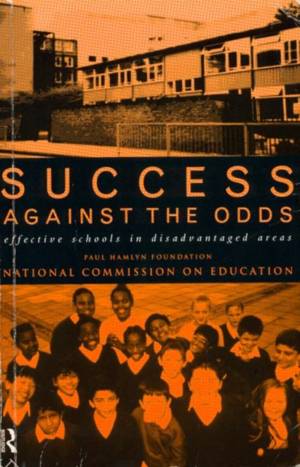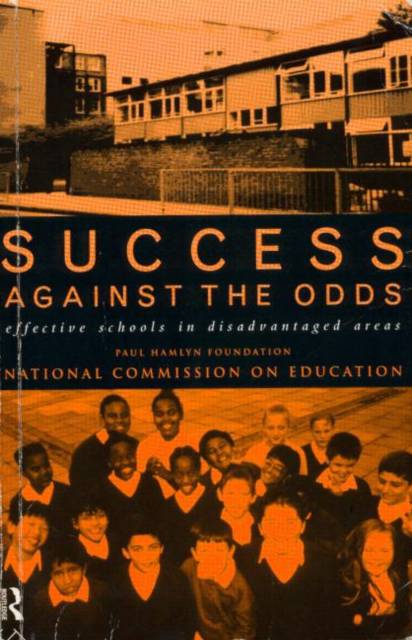
- Retrait gratuit dans votre magasin Club
- 7.000.000 titres dans notre catalogue
- Payer en toute sécurité
- Toujours un magasin près de chez vous
- Retrait gratuit dans votre magasin Club
- 7.000.0000 titres dans notre catalogue
- Payer en toute sécurité
- Toujours un magasin près de chez vous
Success Against the Odds
Effective Schools in Disadvantaged Areas
Paul HamlynDescription
Success Against the Odds is an exciting book about effective schools in disadvantaged areas, written for a wide audience. The findings will be invaluable to headteachers, teachers, governors in all schools, and will also be of great interest to parents and indeed all those who are concerned about the future of our schools and our children.
The best-selling report of the National Commission on Education, Learning to Succeed, published in 1993, achieved widespread attention, acclaim and influence. Success Against the Odds will do the same. This powerful new book picks up one of the key themes of its predecessor, namely how schools in disadvantaged areas can not only be particularly effective but can continue to improve.
A dozen teams have undertaken to investigate a school which can be described as `succeeding against the odds'. Each team includes: * a leading educationalist, providing knowledge about effective teaching and learning and expertise in school improvement; * someone from the business world, offering a fresh insight into the successful management of the school as an organisation, and its interaction with the world of work; * someone working in the regeneration of deprived areas, providing a perspective that places education not in isolation, but as an interdependent part of the life of a local community
The teams have visited a range of successful schools in disadvantaged areas to identify and analyse the key features of their effectiveness, or of their improvement. The schools between them cover a broad spectrum: primary, secondary and special; inner city, town and rural; local education authority maintained, voluntary and grant-maintained. What all the schools have in common is proven experience of overcoming difficult circumstances.
In the case of each school, in-depth investigations of the life and work of the school have taken place, and the teams have attempted to explain the success of these schools. Some are detailed accounts of the life and work of the school, drawing on the views of pupils, parents and teachers to show what lies behind the consistent effectiveness of the school. Others are stories of schools that were 'turned round' from being failing schools to being schools on a long-term improvement path.
In the concluding chapter, the National Commission on Education show that all schools have lessons to learn from these schools.
Spécifications
Parties prenantes
- Auteur(s) :
- Editeur:
Contenu
- Nombre de pages :
- 396
- Langue:
- Anglais
Caractéristiques
- EAN:
- 9780415135269
- Date de parution :
- 09-11-95
- Format:
- Livre broché
- Format numérique:
- Trade paperback (VS)
- Dimensions :
- 127 mm x 203 mm
- Poids :
- 426 g

Les avis
Nous publions uniquement les avis qui respectent les conditions requises. Consultez nos conditions pour les avis.






